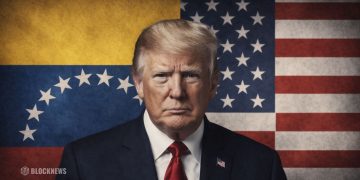- Economists Tyler Cowen and Alex Tabarrok discussed Vitalik Buterin as a potential Nobel Prize contender for economics.
- Buterin was recognized for his contributions to monetary economics, including the development of Ethereum.
- The duo praised Buterin’s shift of Ethereum to proof-of-stake, likening it to a major engineering feat.
Economists Tyler Cowen and Alex Tabarrok, co-hosts of the Marginal Revolution podcast, have suggested Ethereum co-founder Vitalik Buterin as a candidate for the 2024 Nobel Prize in economics. Their discussion took place during an October 8 episode, where Cowen described Buterin as an “unusual pick” for the prestigious award.
Cowen highlighted Buterin’s work in developing Ethereum, a platform that has fundamentally transformed digital finance. According to Cowen, Buterin’s creation of Ethereum’s cryptocurrency and blockchain system made a significant impact on monetary economics, even challenging established theories like Mises’ regression theorem.
Pioneering Contributions to Blockchain and Proof-of-Stake
In addition to creating Ethereum, Buterin’s decision to transition the platform from a proof-of-work to a proof-of-stake mechanism was another major achievement, according to the duo. Tabarrok likened this shift to a complex engineering feat, comparing it to mechanics changing tires while a car is in motion. The move has been widely recognized as a step forward in making blockchain systems more energy-efficient and scalable.
Both economists praised Buterin’s intellectual contributions and his likable persona within the cryptocurrency community, viewing him as a key figure in the continued evolution of blockchain technology. While Bitcoin creator Satoshi Nakamoto was mentioned as deserving similar recognition, Tabarrok speculated that Nakamoto may no longer be alive, a claim Cowen questioned.
Buterin’s Growing Influence
The economists’ recognition of Buterin comes as his work continues to shape the cryptocurrency landscape. Buterin’s development of Ethereum and ongoing improvements to its technology have positioned him as one of the most influential figures in modern economics. While the possibility of a Nobel Prize remains speculative, the conversation reflects his impact on both cryptocurrency and monetary theory.














